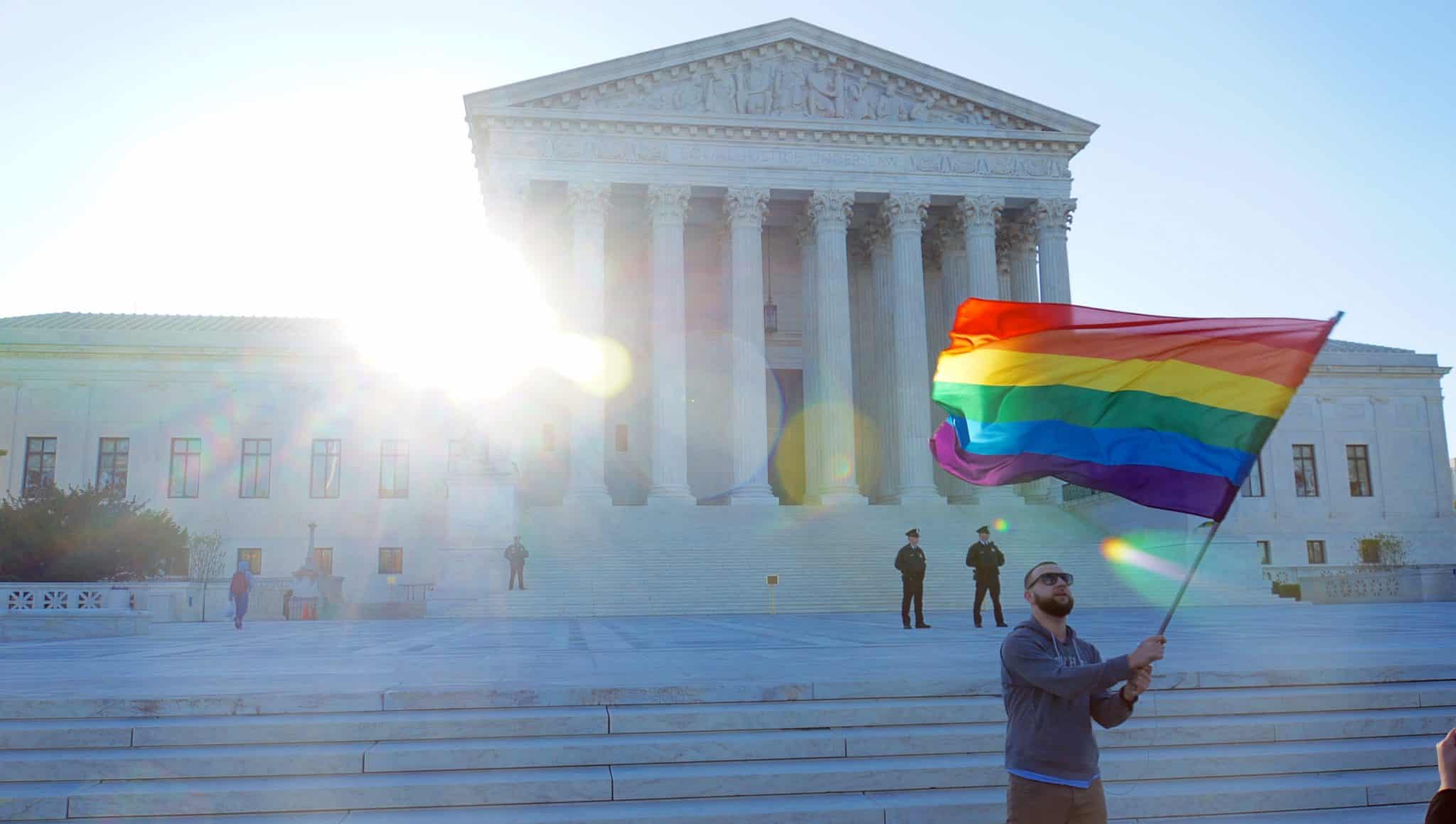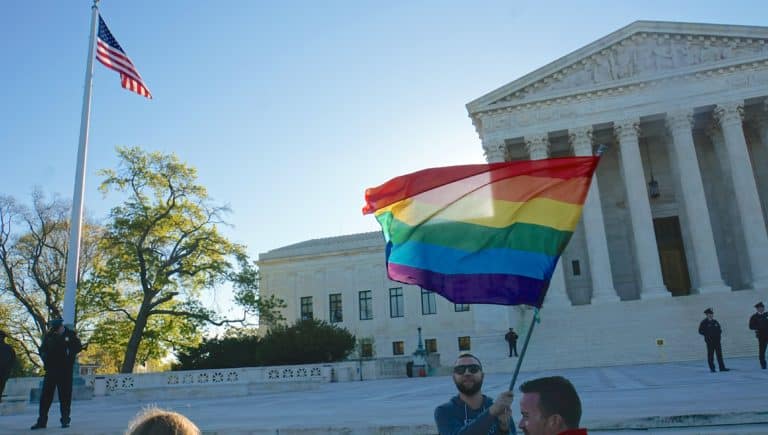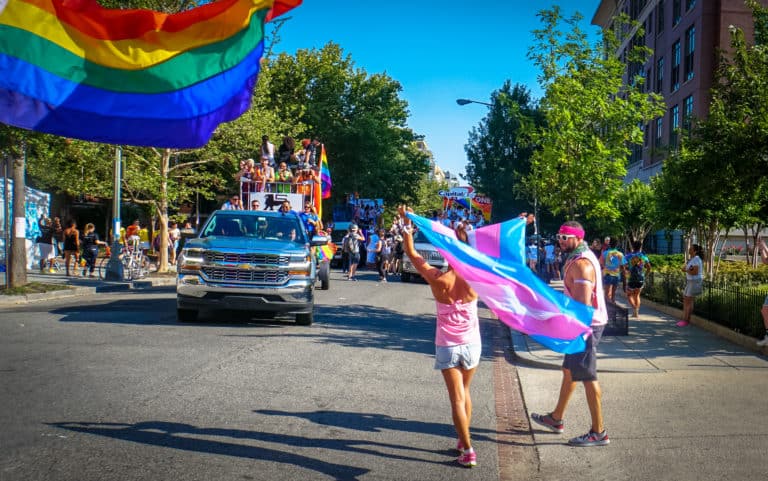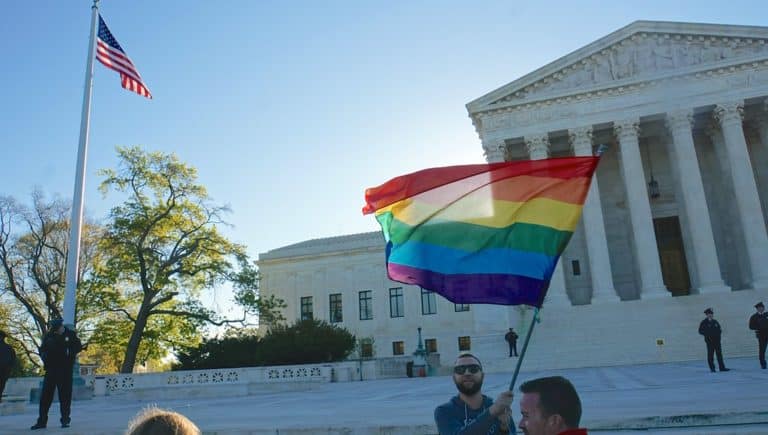Adrienne Spiegel is a student at Harvard Law School.
This morning the Supreme Court granted certiorari in three cases: Bostock v. Clayton County; Altitude Express, Inc. v. Zarda; and R.G. & G.R. Harris Funeral Homes v. EEOC. Bostock and Zarda are consolidated and present the question whether Title VII’s prohibition on discrimination “because of sex” covers discrimination because of sexual orientation. Harris Funeral Homes asks whether the prohibition covers discrimination because of gender identity.
The Court’s rulings in these cases will determine whether lesbian, gay, bisexual, and transgender people are protected by federal statute from discrimination in the workplace. Although twenty-one states have state laws that explicitly prohibit discrimination based on both sexual orientation and gender identity, for workers in the remaining 29 states, Title VII offers the only protection against such discrimination.
The Court has likely stepped in to resolve a circuit split by providing a definitive interpretation of Title VII. In the past four years, the Seventh Circuit, the Second Circuit, and the EEOC have held that Title VII protects sexual orientation, while the Eleventh Circuit held that it does not. The split on the gender identity question is less dramatic. The Sixth, Seventh, Ninth, and Eleventh Circuits have found Title VII protects discrimination because of transgender status, and only the Tenth Circuit has found it does not. Moreover, as Aimee Stephens, the female employee who was fired in Harris Funeral Homes for being transgender, explained in her brief opposing certiorari, every circuit and district court to consider whether a transgender person can bring a Title VII claim on a sex-stereotyping theory under Price Waterhouse has held that they can. Still, the Court granted cert in Harris Funeral Homes to answer both questions: 1) whether Title VII covers transgender status, and 2) whether a transgender person can make out a claim under a sex-stereotyping theory. This opens the door to a narrowing of Price Waterhouse, which could be devastating for all employees who experience discrimination because they fail to conform to sex-based stereotypes.
Court watchers are apprehensive. Since Obergefell, the Court has already tacked right on LGBT issues. And the impact of Justice Kavanaugh’s replacement of Justice Kennedy – who was widely celebrated for his holdings on LGBT rights – may be particularly acute in cases like these. The Court has also recently endorsed an original public meaning theory of statutory interpretation, which it could use here to interpret Title VII as frozen in time. As Ben and I have explained, however, that would likely be a misapplication of the theory even on its own terms, and would contravene Oncale v. Sundowner Offshore Servs. Despite this, there may be reason to be optimistic. Americans across party lines increasingly support non-discrimination protections for LGBT people. And, to borrow from the Seventh Circuit, the Court ought to be reluctant to enshrine “a paradoxical legal landscape in which a person can be married on Saturday and then fired on Monday for just that act.” The stakes for LGBT people, and for everyone who supports safety and self-determination in the workplace, are high.









Daily News & Commentary
Start your day with our roundup of the latest labor developments. See all
December 13
In today’s News & Commentary, the Senate cleared the way for the GOP to take control of the NLRB next year, and the NLRB classifies “Love is Blind” TV contestants as employees. The Senate halted President Biden’s renomination of National Labor Relations Board Chair Lauren McFerran on Wednesday. McFerran’s nomination failed 49-50, with independents Joe […]
December 11
In today’s News and Commentary, Biden’s NLRB pick heads to Senate vote, DOL settles a farmworker lawsuit, and a federal judge blocks Albertsons-Kroger merger. Democrats have moved to expedite re-confirmation proceedings for NLRB Chair Lauren McFerran, which would grant her another five years on the Board. If the Democrats succeed in finding 50 Senate votes […]
December 10
In today’s News and Commentary, advocacy groups lay out demands for Lori Chavez-DeRemer at DOL, a German union leader calls for ending the country’s debt brake, Teamsters give Amazon a deadline to agree to bargaining dates, and graduates of coding bootcamps face a labor market reshaped by the rise of AI. Worker advocacy groups have […]
December 9
Teamsters file charges against Costco; a sanitation contractor is fined child labor law violations, and workers give VW an ultimatum ahead of the latest negotiation attempts
December 8
Massachusetts rideshare drivers prepare to unionize; Starbucks and Nestlé supply chains use child labor, report says.
December 6
In today’s news and commentary, DOL attempts to abolish subminimum wage for workers with disabilities, AFGE reaches remote work agreement with SSA, and George Washington University resident doctors vote to strike. This week, the Department of Labor proposed a rule to abolish the Fair Labor Standards Act’s Section 14(c) program, which allows employers to pay […]